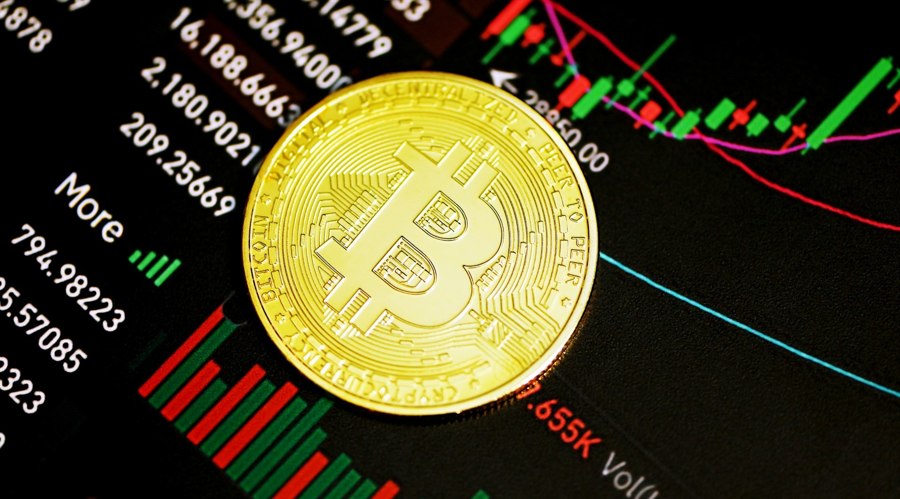U.S. Retirement Fund Interest in Bitcoin: FOMO or Future-Oriented Strategy?
Wisconsin Investment Commission recently bought $99 million worth of IBIT shares. This is the first pension fund in the United States to invest directly in Bitcoin through a Bitcoin ETF.

The Wisconsin State Board of Investments recently announced the purchase of $99 million worth of shares of IBIT, BlackRock's spot bitcoin ETF. This is the first time a public pension fund has invested in Bitcoin ETF shares.
While this is the first time a state pension has purchased shares of a bitcoin ETF, it is not the first time a pension fund has invested in bitcoin.2021 In October, the Houston Firefighters Relief and Retirement Fund purchased an undisclosed amount of BTC through institutional bitcoin service provider NYDIG.
That was before the advent of spot ETFs. Now that there is a safer and simpler alternative to buying Bitcoin outright, expect more large pension funds to follow suit.
Why Bitcoin? Understanding the reasons behind the decision
The idea behind adding Bitcoin to your balance sheet is simple. As Michael Seller puts it, holding large cash balances is like sitting on “melting ice”. Inflation continues to erode the value of cash, resulting in losses for investors.
Because pension funds must balance the need to provide secure returns for retirees with prudent risk management, their typical strategy is to invest primarily in government bonds. Long-term and short-term treasury bonds are considered the least risky securities with stable returns. Blue chip stocks and investment grade bonds are also viable options. For many years, these three asset classes were the only ones in which pension funds could legally invest.
But in the wake of the global financial crisis and subsequent years of near-zero interest rates, pensions have had to get more creative to generate returns, and the rules have been relaxed. To make matters worse, bond yields have risen sharply since 2022. This has made short-term Treasury bills attractive because of their higher interest rates, but it has also meant that the value of bonds has fallen, leading to losses for anyone holding long-term government debt.
Essentially, this situation played a big role in pension funds starting to invest in Bitcoin.
Future prospects: what this means for other pension funds
As the saying goes, no one can predict the future. However, we can take a look at what's been happening in the business recently to get an idea of what the future holds for pension funds.
Michael Saylor's MicroStrategy was the first publicly traded company to use Bitcoin as a treasury asset. The company currently holds over 210,000 BTC, or about 1% of the total supply. The strategy has been a huge success. Not only has the company's balance sheet ballooned to billions of dollars, but its stock price has soared.
As expected, other CEOs took notice. Many of them want to follow Sailer's lead, and some are already taking action.
For example, two more companies have recently joined the list of companies adopting a bitcoin funding strategy.2024 On May 28, 2024, Semler Scientific's stock price spiked on news that the company had added $40 million worth of bitcoins to its balance sheet.2024 On April 9, 2024, Metaplanet, a Japanese Web3 infrastructure provider, announced that it was acquiring the company for $6.5 million in BTC acquisition, its shares soared 90%.
It's safe to say that something similar could happen with pension funds. But it's worth noting that there tends to be a considerable time delay between first movers and further adoption. microStrategy began acquiring bitcoin in 2020. Four years later, corporate adoption of Bitcoin began to gain momentum.
So it may be a few more years before we see other pension funds follow in the footsteps of the Wisconsin Investment Board. On the other hand, it's also possible that these funds have been preparing behind the scenes for months. If that's the case, a wave of investment could be on the horizon.
Looking Ahead: the Role of Bitcoin in Institutional Investment Strategies
2024 seems to be the year when institutions of all kinds will start accepting Bitcoin and cryptocurrencies as a legitimate asset class. The incentives are proving too big to ignore. Many in the industry refer to this as a natural progression of game theory: after a first mover achieves great success, others must follow or they risk falling behind.
Corporations and pension funds are among the first outside of asset managers to profit from the bitcoin boom. Many speculate that larger entities such as sovereign wealth funds, nation-states and even central banks could be the next to profit.
Disclaimer: The views in this article are from the original Creator and do not represent the views or position of Hawk Insight. The content of the article is for reference, communication and learning only, and does not constitute investment advice. If it involves copyright issues, please contact us for deletion.